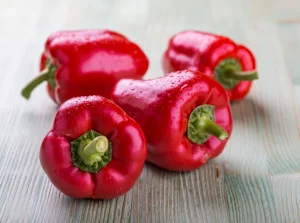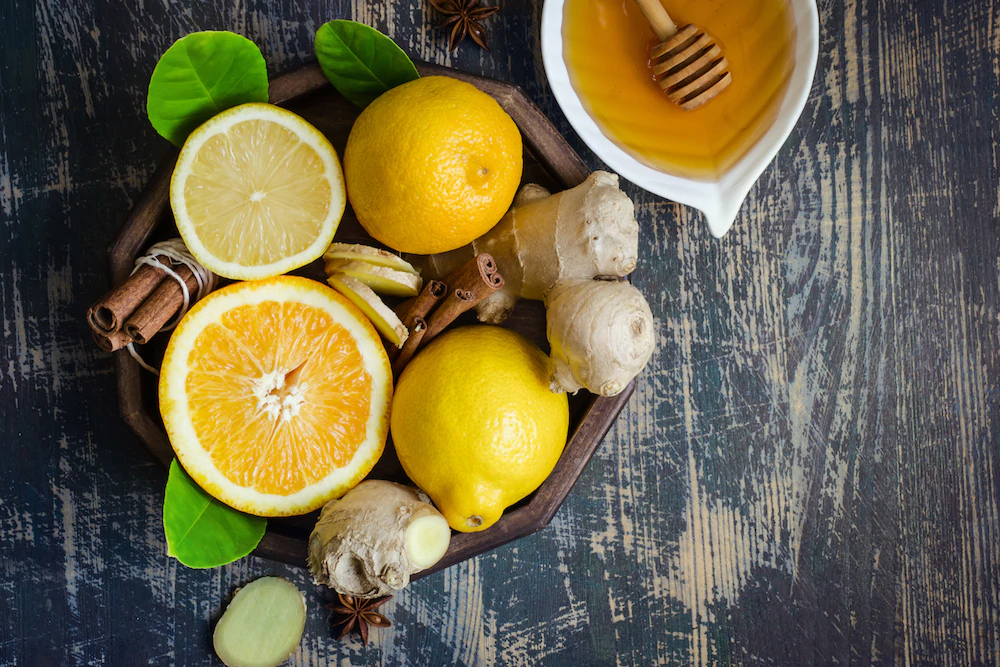Food is the fuel that keeps our bodies going. Like petrol to a car, food is the energy source that will get us from A to B. Like petrol, there are varying quality differentiators between food and not all food fuel is created equal. Eating the right kinds of food can benefit your immune system, and with the cooler weather setting in, every little benefit helps. Let’s explore the favours you can do for your immune system through food, so you can weave some of these nutrient-packed goodies into your diet with ease. Food in isolation to overall good health and wellness won’t cure disease or prevent illness, but good nutritional practices and paying attention to your sources of macronutrients will help boost your immunity.
Table of Contents
Immune-boosting foods: poultry and seafood
It turns out chicken soup has more than just a comforting impact when you’re sick. In terms of immune-boosting foods, chicken and turkey are both packed with Vitamins B3, B6 & B12 which can help with the production of red blood cells. Shellfish are also another tasty immune-boosting food, giving your body a healthy dose of zinc. Many studies have found that zinc can help your body fight off infectious diseases, and is essential for a strong immune system. While we’re in the sea, let’s talk about salmon. It’s chock-full of protein, omega-3, iron, zinc, selenium and B-Vitamins, as well as being totally delicious, so sign us up for the seafood diet any day.
Fruits that boost the immune system
Out of all the food that’s good for the immune system, probably the most well-known is the citrus family. From grapefruits and oranges to lemons and limes, citrus fruits are famous for being packed with Vitamin C, which is thought to help produce white blood cells. Papaya is another Vitamin C fruit hero, with 224% of your recommended daily intake in a single papaya.
Berries in all forms (blueberries, strawberries, raspberries, blackberries etc.) are full of antioxidants, and in some studies, have shown to help block flu viruses. These studies are in the very early stages though so cannot be taken as fact, however they’re still a great immune-boosting snack!

Vegetables that boost the immune system
Did you know that red capsicum has twice as much Vitamin C per gram than citrus? Spinach is also rich in Vitamin C, as well as beta carotene (most red and yellow veggies also have loads of beta-carotene) and loads of antioxidants, all of which are great for keeping your immune system in tip-top shape. Broccoli is another Vit C-packed food, as well as playing host to a load of other vitamins, antioxidants and fibre. Both spinach and broccoli are best eaten raw or cooked for a very short amount of time, as too much cooking can cause them to lose some of their nutritional value. Mushrooms are also a great addition to any meal, being low in calories but high in Vitamin B and Zinc.
Do eggs boost your immune system?
Eggs are generally known as being a super-healthy food, however there’s been a rumour going around for a little while now that the yolk contains a high amount of cholesterol. This is an urban myth however, as we now know that enjoying 1 – 2 eggs daily is perfectly fine for the average person. If you are looking to manage your cholesterol, instead try limiting saturated, high-fat foods and including healthy fats in your diet instead. Eggs have a huge range of benefits, including boosting your immune system. Vitamin A, B12 and Selenium are all found in eggs, and work to help keep your immune system strong and fighting.
The truth about garlic
Not just for warding off vampires, it’s a common belief that garlic can also ward off sickness, and boost your immune system. The active compound allicin, present in garlic has been shown to have medicinal purposes and helps the immune system fight off foreign bodies and germs. Studies have shown that eating garlic can decrease the risk of you getting sick and reduce the severity of symptoms. However, the way you prepare the garlic can have a big effect on its immune-boosting properties. Research has found that the best ways to eat garlic are:
- Crush or slice all garlic before you eat it
- Let it stand for 10 minutes before you cook with it
- Use lots of garlic – ideally more than one clove per meal

Why bread isn’t the enemy
Although no-carb diets are ‘cool’, they’re not actually sustainable or backed by science. In Australia, all bread-making flour has to be fortified with folate, which is a key player in the production of white blood cells. More white blood cells = a healthier immune system, so forget the no-carbs and dig into that cheese toastie!
Foods that weaken the immune system
Some studies have shown that having a diet high in sugar or refined carbs can actually suppress your body’s immune system. If you’re trying to recover from being sick, or just trying to keep a healthy immune system to avoid getting sick in the first place, we’d recommend avoiding sugary soft drinks, processed foods, sugary snacks, refined carbohydrates and alcoholic beverages.
In a healthy, well-balanced diet it’s important to get a good variety of food in there. Purely trying to rely on chicken and lemon to boost your immune system isn’t going to help nearly as much as if you had a healthy variety of fresh, colourful fruit and veg in there!
As well as trying to keep your diet and body as healthy as possible, don’t forget to keep practising social distancing and washing your hands.

